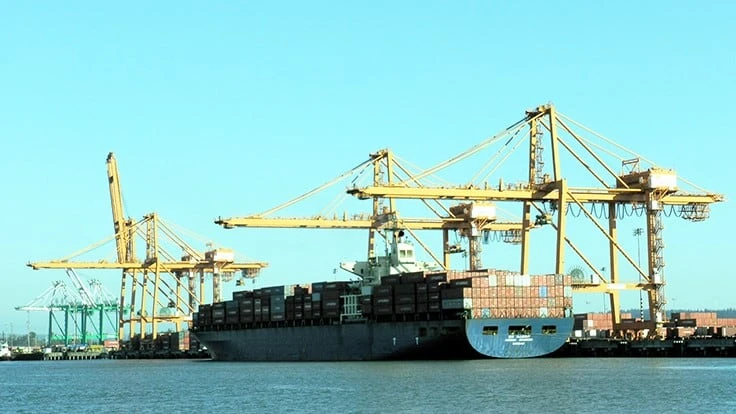
© Paige Foster - Dreamstime.com
Several policies are sure to have an impact on global scrap markets in 2021. During the MRF Summit, which was jointly hosted by the Washington-based Institute of Scrap Recycling Industries (ISRI) and the Silver Spring, Maryland-based Solid Waste Association of North America (SWANA), ISRI Vice President of Advocacy Adina Renee Adler closed the two-day virtual event with a session titled What’s Coming in 2021: Global Market Development Opportunities and Challenges. ISRI and SWANA hosted the MRF Summit online Nov. 18-19.
Adler said recyclers could be affected by the Basel Convention's requirements for plastic scrap trade, China's ban on recovered fiber imports, the European Union's Green Deal and possible changes in other key markets.
Basel Convention
The Basel Convention on the Control of Transboundary Movements of Hazardous Wastes and their Disposal subjects hazardous wastes or other materials with hazardous constituents to a prior informed consent procedure before the material can be shipped across national borders, giving the receiving country the right of refusal if proper recycling or disposal operations do not exist.
Adler noted that parties to the Basel Convention had agreed to restrictions regarding the import of certain kinds of plastics in 2019. “What we saw with the discussion last year is now the scope of [the Basel Convention] has been expanded to impose controls on certain nonhazardous materials,” she said.
Beginning Jan. 1, 2021, restrictions on imports of nonhazardous plastics that are highly contaminated or mixed will be implemented. One challenge with this change to the Basel Convention is the uncertainty around what defines contamination, and Adler said the wording has various interpretations.
“There is work being done to clear up the definitions, and ISRI is directly involved in that, but that is not going to be ready by Jan. 1,” she said.
The U.S. is a nonparty to the Basel Convention, which prohibits trade in controlled items except under special arrangements. Negotiations are ongoing to redefine recycling in the Basel Convention.
Adler said the Basel Convention allows for Article 11 agreements in which special arrangements can be made between parties and nonparties regarding transboundary movements of hazardous wastes and other wastes provided they are not less strict as the Basel Convention. She said the U.S. and Canada have recently formalized an arrangement that will preserve the status quo for imports of nonhazardous end-of-life plastics.
Policies in China
Recyclers are preparing themselves for China’s ban on paper scrap imports that goes into effect Jan. 1, 2021. Although China is banning scrap paper, Adler said the country is expected to continue to allow the import of recycled pulp.
“That’s where we see investments in the U.S. on revitalizing paper mills to create pulp to go to China,” she said. “That will still be allowed, which is a glimmer of hope.”
Regarding scrap metal, Adler reported that Chinese government officials are developing recycled raw materials standards for scrap metal specifically. She said those standards will be very strict, requiring material that is essentially mill ready. She added that ISRI has been told that China also is developing similar standards for plastic pellets. It’s expected that these standards will come into play sometime in 2021.
Other key markets
Adler said ISRI has been closely watching changing policies related to scrap trading in India, Malaysia and Indonesia, as well.
Both Indonesia and Malaysia plan to enact Basel Convention restrictions on plastic scrap next year.
In 2019, India had announced plans to ban the import of plastic scrap. “As far as we know, that’s not been implemented,” she said.
India also had announced stringent plans for mixed paper imports in the last two years, but Adler said the country has not enacted any official bans or prohibitions on that material.
EU Green Deal
The European Green Deal was introduced just prior to the pandemic at the end of 2019. More recently, Adler said, European Union (EU) lawmakers released the Circular Economy Action Plan 2.0, which better illustrates the EU’s concept of the circular economy. She noted that a big focus in the European Green Deal is on domestic recovery and reuse within the EU.
“It’s not the most optimistic, at least for us on this side of the Atlantic, when it comes to moving materials across borders,” Adler said. “We’re starting to see the possibilities through other policymaking in Brussels that would potentially ban exports of recyclable commodities,” which she said could have an impact on recyclable commodity pricing as well as supply and demand. The EU also is considering zero imports as part of its Green Deal.
Latest from Waste Today
- Quest Resource posts Q4 loss, names new CEO
- Indianapolis awards solid waste contract, updates recycling drop-off program
- Kent County, Michigan, highlights hazardous waste disposal programs
- Viably, Turmec partner on Ohio installation
- EPA plans to revisit numerous environmental, climate regulations
- Miami-Dade Innovation Authority launches fifth Public Innovation Challenge
- Fornnax wins Green Innovation of the Year award
- Louisiana city launches glass recycling program





